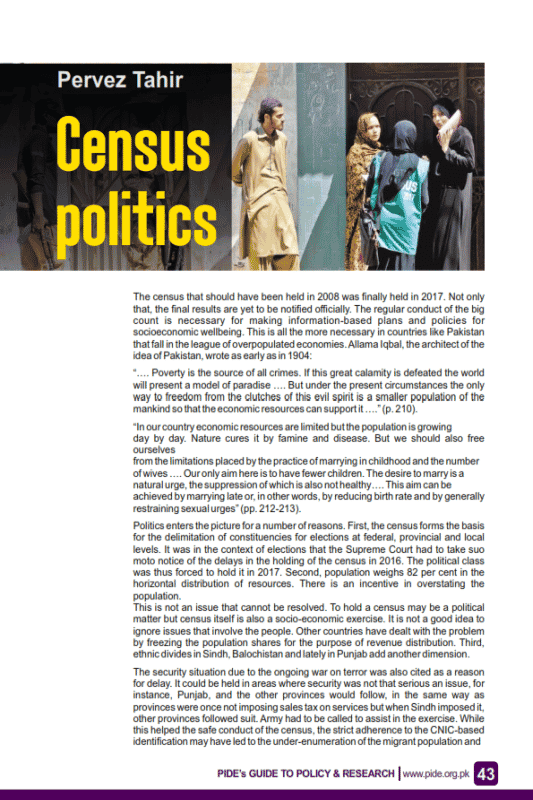Census politics
The census that should have been held in 2008 was finally held in 2017. Not only that, the final results are yet to be notified officially. The regular conduct of the big count is necessary for making information-based plans and policies for socioeconomic wellbeing. This is all the more necessary in countries like Pakistan that fall in the league of overpopulated economies. Allama Iqbal, the architect of the idea of Pakistan, wrote as early as in 1904: “…. Poverty is the source of all crimes. If this great calamity is defeated the world will present a model of paradise …. But under the present circumstances the only way to freedom from the clutches of this evil spirit is a smaller population of the mankind so that the economic resources can support it ….” (p. 210). “In our country economic resources are limited but the population is growing day by day. Nature cures it by famine and disease. But we should also free ourselves from the limitations placed by the practice of marrying in childhood and the number of wives …. Our only aim here is to have fewer children. The desire to marry is a natural urge, the suppression of which is also not healthy…. This aim can be achieved by marrying late or, in other words, by reducing birth rate and by generally restraining sexual urges” (pp. 212-213). Politics enters the picture for a number of reasons. First, the census forms the basis for the delimitation of constituencies for elections at federal, provincial and local levels. It was in the context of elections that the Supreme Court had to take suo moto notice of the delays in the holding of the census in 2016. The political class was thus forced to hold it in 2017. Second, population weighs 82 per cent in the horizontal distribution of resources. There is an incentive in overstating the population.




